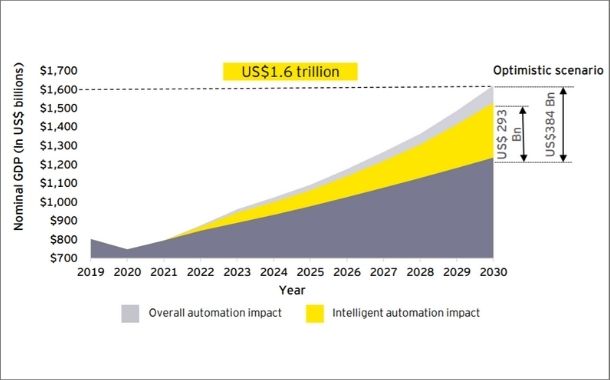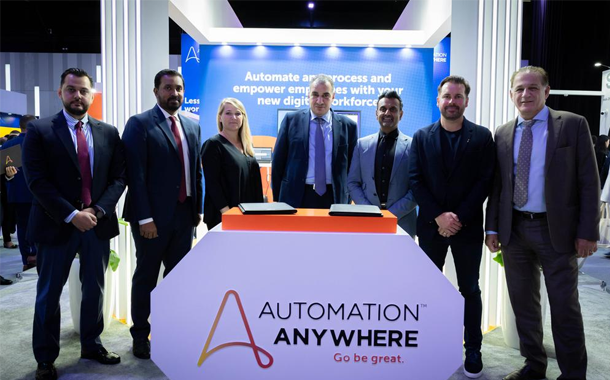Saudi Arabia’s Vision 2030 continues to exhibit success in diversifying the economy to non-oil sectors, and transforming the nation with improved transparency, accountability, access and fast paced execution. For Saudi Arabia to diversify and drive long term sustainable growth, it is critical to focus on improved productivity by investing in new-age technologies and building the skills of the future.
Saudi Arabia has acknowledged the importance of technology-led productivity enhancements and is embracing technology as one of the fundamental pillars in its Vision. Intelligent Automation, IA, is unquestionably amongst the top digital transformation enablers for enterprises and government with compelling and proven benefit of productivity gains.
The productivity improvement for a sector that can be achieved through automation technologies varies on the basis of current adoption of automation and the future automation potential of the sector. To quantify the potential impact of automation technologies on Saudi Arabia’s economy by 2030 and calculate the productivity improvement across sectors, a realisation percentage of the automation potential across each sector was estimated. A key hypothesis considered is that IA will act as a virtual workforce performing the identified activities and the freed up human resources will re-join the workforce with enhanced skills and higher productivity than before.
Intelligent automation offers the potential to double the economy of Saudi Arabia to $1.6 Trillion, adding an additional $293 Billion by 2030, according to new research commissioned by Automation Anywhere.
Ernst & Young’s Automation Impact Assessment Modeller, EY-AIAM, computes the impact that increased automation adoption can have on the Nominal GDP in absolute dollar terms. The modeller has been used to compute the impact of incremental automation adoption across all sectors of Saudi Arabia for three scenarios at varying levels of automation adoption as described below:
- Optimistic scenario – 50% realisation of incremental automation potential by 2030
- Moderate scenario – 30% realisation of incremental automation potential by 2030
- Conservative scenario – 15% realisation of incremental automation potential by 2030
The report identified three critical enablers to accelerate intelligent automation: speed up the digital transformation of government entities and private enterprises by increasing fast and secure services through the cloud; increase training and development in digital skills, and support a stronger ecosystem of start-ups, enterprises, government, and academia to drive innovation.
Saudi Arabia’s continued focus on reform manifested in 2030 goals has helped the country add approx. $150 Billion to its GDP, since the launch of the plan in 2016.
To drive sustained long-term growth, it is critical to factor in technology-led productivity improvement that would help compound the economic output generated from assets, resources, and human capital that are invariably finite. Multiple studies have proven that countries that have embraced new-age technologies and invested in building skills of the future, have witnessed positive economic growth on the back of improved labour productivity.
Technologies at the forefront of this revolution include cloud computing, Internet of Things, IoT, Blockchain, advanced human computer interaction, 3D printing, smart sensors, VR/AR, etc. Of these digital technologies, Intelligent Automation –a confluence of artificial intelligence and Robotic Process Automation is witnessing massive global adoption as a result of realised efficiency in every sector at the grass-root level. It has the potential to touch every activity of the workforce -making it simpler, easier and faster –thereby increasing the productivity and hence, the economic output.
While some automation technologies have been around for a few years, the new wave of Intelligent Automation, IA, is causing a disruptive revolution for organisations and entities that is dramatically changing the way they operate. Automation solutions handle routine, repetitive work thereby increasing the productivity of the workforce.
However, as traditional levers of productivity improvement mature, Intelligent Automation is emerging as a key lever in driving forward the transformation across sectors. It will enable businesses to move beyond the current performance trade-offs and attain exceptional levels of efficiency and productivity.
The spectrum of business problems that can be solved using Intelligent Automation is expanding with continuous advancements in the underlying technologies. As more and more government entities and businesses realise the potential benefits of IA, the scope of its applicability across functions is also increasing. Government services, banking, insurance emerge as the top industries contributing to incremental growth due to automation.
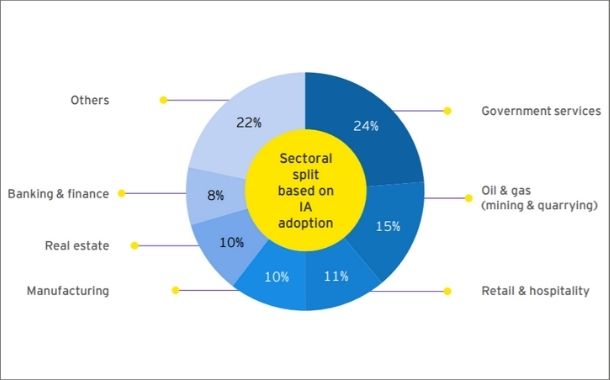
Case Study 1
Banks in Saudi Arabia have started to invest in automation technologies for productivity gains in both front-office and back-office operations. Bank AlJazira implemented automation across various processes with a strong executive sponsorship and a robust governance model which are prerequisites for achieving the desired outcome.
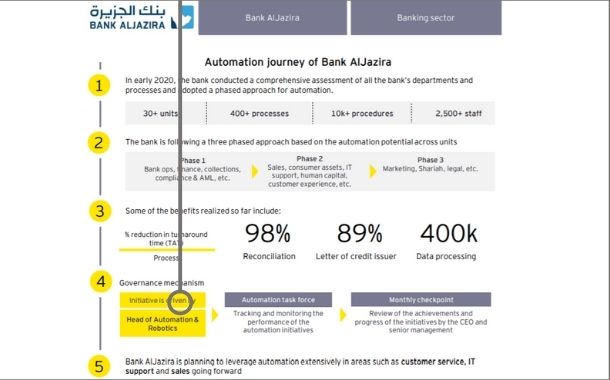
Case Study 2
A number of companies that have already started their automation journeys are realising the benefits. One of the prominent examples is Seera Group, the leading provider of diverse travel services in the Middle East and North Africa, that has invested in automation technology in their back-office operations and has plans to expand it to front office operations. Below is the automation journey of the Seera Group.
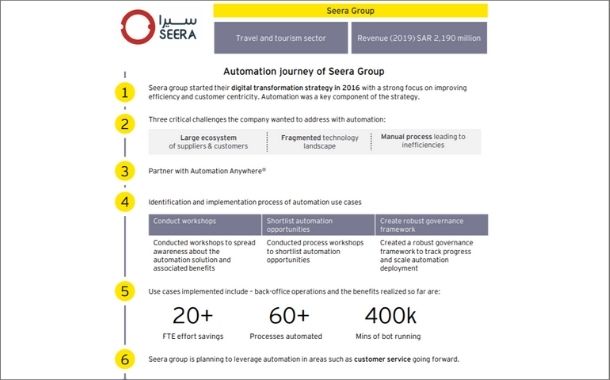
IA has all the key characteristics of being an active catalyst in accelerating Saudi Arabia’s digital transformation journey and assisting Saudi Arabia to realise its vision. Emphasis on increased adoption of IA as a fundamental element of digitisation is one of the common traits observed across the most digitally advanced countries in the world.
Milan Sheth, Executive Vice President, IMEA, Automation Anywhere.

To leverage technology-led productivity enhancement and to realise the economic benefits within the timeframe, Saudi Arabia needs to accelerate its transformation journey, through a digital-first mindset realised through investments in new-age digital technologies such as AI, automation, IoT, cloud, etc.
Government services, banking, insurance emerge as the top industries contributing to incremental growth due to automation.



